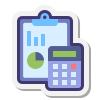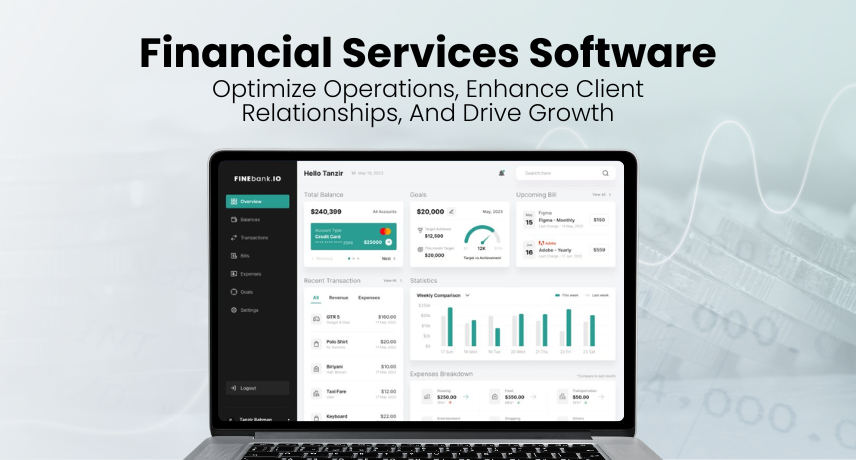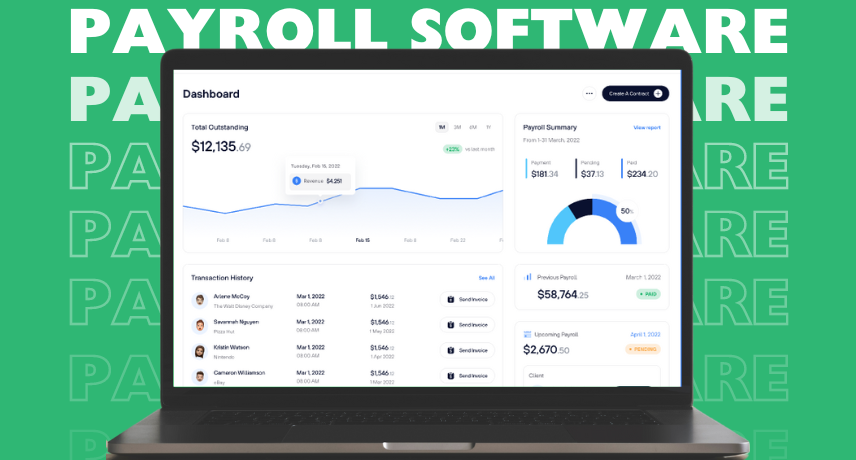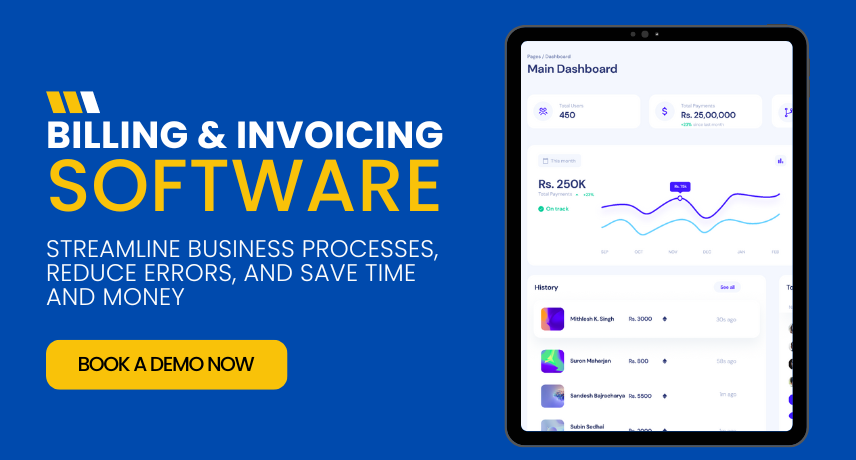Enquiry Form
What is Financial Services Software?
Financial services software encompasses a broad range of applications designed to streamline and automate various aspects of the financial industry. These solutions cater to diverse needs, including investment management, financial planning, customer relationship management (CRM), risk management, and regulatory compliance.
Think of it as a comprehensive toolkit for financial professionals, enabling them to:
- Manage investments: Track portfolios, analyze performance, and execute trades efficiently.
- Plan financially: Develop personalized financial plans, analyze cash flow, and optimize investment strategies.
- Build customer relationships: Manage client interactions, track communications, and provide personalized advice.
- Mitigate risks: Identify and assess potential risks, implement control measures, and ensure compliance with regulations.
- Gain insights: Analyze financial data, identify trends, and make informed decisions to improve business performance.
Must-Have Features in Financial Services Software
Empower your team and deliver exceptional client service with these key features

Portfolio Management
Track investment portfolios, analyze performance, and generate reports for clients.

Financial Planning
Develop personalized financial plans, analyze cash flow, and optimize investment strategies.

Customer Relationship Management
Manage client interactions, track communications, and personalize advice.

Risk Management
Identify and assess potential risks, implement control measures, and monitor compliance.

Compliance Management
Ensure adherence to regulatory requirements, such as KYC (Know Your Customer) and AML (Anti-Money Laundering).

Reporting & Analytics
Generate reports on key performance indicators, client portfolios, and financial performance.

Financial Modeling
Create financial models to forecast future performance and analyze investment scenarios.

Document Management
Securely store and manage client documents, contracts, and other important information.

Client Portal
Provide clients with online access to their accounts, portfolio information, and financial reports.

Mobile Access
Enable access to financial data and tools on mobile devices.

Trading & Execution
Facilitate efficient trade execution and order management.

Accounting & Reconciliation
Integrate with accounting systems to streamline financial reporting.

Security
Implement robust security measures, including encryption, authentication, and access controls.

API Integrations
Integrate with third-party applications and services to extend functionality.

Customization
Tailor the software to your specific needs and workflows.
How Financial Services Software Benefits Your Business
Enhance efficiency, improve decision-making, and deliver exceptional client service.
- Streamlined operations: Automate manual processes, reduce paperwork, and improve operational efficiency.
- Enhanced client experience: Offer personalized financial advice, proactive communication, and convenient online access to information.
- Reduced costs: Minimize operational expenses, improve resource allocation, and reduce the need for manual labor.
- Improved compliance: Ensure adherence to regulatory requirements and minimize the risk of penalties.
- Better risk management: Identify and mitigate potential risks, protect assets, and enhance decision-making.
- Data-driven insights: Gain valuable insights into market trends, client behavior, and financial performance.
5 Industries Where Financial Services Software is Essential
Optimize operations and improve client service in these key sectors
- Portfolio Management: Track and manage diverse portfolios across all asset classes. Monitor performance with real-time data, customizable reports, and alerts. Rebalance portfolios and model different investment scenarios to optimize returns and manage risk.
- Trading: Execute trades swiftly across various exchanges and markets. Automate trade orders based on predefined rules or algorithms. Access real-time market data, news, and research to make informed investment decisions.
- Risk & Compliance: Conduct in-depth risk assessments and stress tests to identify and mitigate potential investment risks. Ensure compliance with regulations (e.g., SEC, FINRA) and investor mandates. Generate compliance reports and maintain audit trails.
- Client Reporting: Create professional, customized client reports that showcase portfolio performance, holdings, and transactions. Communicate effectively with clients through secure portals, personalized reports, and online access to their investment data.

- Financial Planning: Develop comprehensive and personalized financial plans based on client goals, risk tolerance, and financial situation. Analyze cash flow, project future income and expenses, and identify areas for improvement. Create plans for retirement, education savings, and other financial goals.
- Investment Advice: Recommend and manage investment portfolios tailored to client needs and risk profiles. Optimize investment strategies based on market conditions and client goals. Provide access to investment research, analysis tools, and financial planning resources.
- Client Management: Manage client relationships, track communication, and schedule meetings. Provide clients with secure access to their financial plans, progress reports, and interactive tools. Monitor client goals, track progress, and adjust plans as needed to stay on track.
- Retirement Planning: Calculate retirement income needs and project retirement expenses. Analyze Social Security benefits, pensions, and other retirement income sources. Develop strategies for tax-efficient withdrawals, estate planning, and legacy management.

- Core Banking: Manage all types of customer accounts, including checking, savings, loans, and credit cards. Process a wide range of transactions, including deposits, withdrawals, transfers, and loan payments. Maintain accurate customer information, track account history, and generate statements.
- Lending: Originate and service various loan products, including mortgages, auto loans, personal loans, and business loans. Manage credit risk, assess borrower creditworthiness, and automate underwriting processes. Monitor loan performance, track payments, and manage delinquencies.
- Digital Banking: Provide customers with secure and convenient online and mobile banking services. Enable online bill pay, fund transfers, mobile check deposit, account alerts, and other self-service banking functions.
- CRM: Manage customer interactions, track communications, and personalize banking services. Identify customer needs, offer targeted products and services, and improve customer satisfaction.
- Compliance: Ensure compliance with all relevant banking regulations, including KYC (Know Your Customer), AML (Anti-Money Laundering), and data privacy laws. Manage risk, prevent fraud, and protect customer data with robust security measures.

- Policy Management: Issue and manage various insurance policies, including auto, home, life, and health insurance. Track policyholder information, process premiums, and manage policy renewals, cancellations, and changes. Provide online access to policy documents and information for policyholders.
- Claims Management: Process insurance claims efficiently, track claim status, and manage claim settlements. Automate claim routing, assign adjusters, and manage claim communications. Analyze claims data to identify trends, mitigate risks, and improve claims processing efficiency.
- Underwriting: Automate underwriting processes, assess risk profiles based on various factors (e.g., age, health, driving history), and determine policy premiums. Access data from various sources, such as credit bureaus and medical records, to inform underwriting decisions.
- Agent Portals: Provide agents and brokers with online portals to access policy information, quotes, and sales tools. Facilitate communication between agents, brokers, and insurance companies. Track agent performance and manage commissions.
- Customer Service: Offer excellent customer service by providing policyholders with online and mobile access to policy information, claims status, and self-service options. Improve customer communication through various channels, including email, chat, and phone support.

- CRM: Manage leads efficiently, track client interactions, and nurture relationships with personalized communication and targeted content. Segment leads based on property preferences, budget, and other criteria.
- Property Listings: List properties on multiple platforms, including MLS and popular real estate websites. Create virtual tours, upload high-quality photos and videos, and manage all property details. Track property views, inquiries, and offers.
- Transactions: Manage the entire real estate transaction process, from offer to closing. Track deadlines, manage paperwork, and ensure compliance with real estate regulations. Automate document generation and e-signatures for faster processing.
- Property Management: Manage rental properties, screen and track tenant information, collect rent payments online, and handle maintenance requests efficiently. Communicate with tenants, generate financial reports, and automate property management tasks, such as lease renewals and rent reminders.
- Market Analysis: Analyze market trends, assess property values using comparative market analysis (CMA) tools, and provide investment advice to clients. Access data on comparable properties, market conditions, and neighborhood demographics to make informed decisions.


Choosing the Best Financial Services Software Company
Find a partner who understands your unique needs and challenges.
Selecting the right financial services software is crucial for your success. Consider these factors when evaluating providers:
- Functionality: Does the software offer the specific features you need for your area of financial services, such as investment management, financial planning, or regulatory compliance?
- Security: Does the software provide robust security measures to protect sensitive client data and comply with industry regulations?
- Scalability: Can the software grow with your business and adapt to your evolving needs?
- Integrations: Does it integrate with your existing systems, such as CRM platforms, portfolio management tools, and accounting software?
- User-friendliness: Is the software intuitive and easy to use for your team members?
- Support: Does the company offer reliable customer support, training, and ongoing maintenance?
- Pricing: Choose a solution that aligns with your budget and provides a strong return on investment.
- Reputation: Choose a provider with a proven track record in the financial services industry and positive customer reviews.

Financial Services Software | Streamline Finance Operations with Ease
Optimize your financial processes with intelligent financial services software. Manage transactions, reporting, compliance, and analytics with secure, scalable solutions.
Latest News
Stay updated with latest industry information
Get answers to your most common questions
Frequently Asked Questions about Financial Services Software








